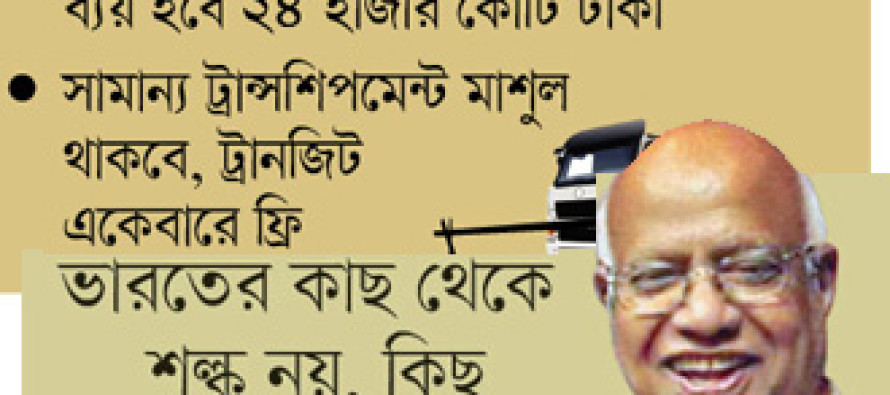Free transit to India and the ‘civilised’ economic affairs adviser to the prime minister

Freedom of transit through the territory of one country to another country is a standard trade practice under the World Trade Organisation (WTO) rules. Article V of the General Agreement on Tariffs and Trade (GATT) updated in 1994 stipulates the scope and application of these rules.
One of the provisions of the Article V states that ‘traffic in transit shall be exempt from customs duties and from all transit duties or other charges imposed in respect of transit, except charges for transportation or those commensurate with administrative expense entailed by transit or with the cost of services rendered’. Thus, Bangladesh cannot impose any customs duties or transit duties for goods entering its territory from one part of India for destination to other parts (such Eastern part).
So far, so good. I think what is not being pursued in earnest by the Bangladesh Government is collecting administrative fees and other charges for services provided to India in its transportation of goods through Bangladesh, whether using Bangladesh’s roads, railways or rivers. There is no bar to collecting such fees and charges under the WTO rules.
A recent media article in a newspaper in Bangladesh quoted Dr Mashiur Rahman, adviser to the prime minister Sheikh Hasina on economic affairs as saying that Bangladesh will be treated as ‘uncivilised’ if it charges any fees for providing transit facilities to India. I consider that this view expressed by Dr Rahman does not make sense as the WTO rules provide for such legitimate fees and charges except customs duties or transit duties for transport of goods through another country.
Is Egypt an ‘uncivilised’ country because it charges ‘transit tolls’ for foreign ships passing through the Suez Canal? Like Bangladesh, Egypt is a WTO member. Egypt collects transit tolls for ships and vessels passing through the Suez canal. The Suez Canal Authority of Egypt collects these tolls based on net tonnage of goods transported in transit. The transit tolls also depends on the type of vessels passing through the canal – example being tankers of crude oil or petroleum products, LPG or LNG carriers, container ships and general cargo ships.
I think it is against the national interest of Bangladesh to give India a free ride on traffic in transit. While Bangladesh cannot charge transit duties, it should charge administrative fees and other expenses associated with the use of its infrastructure, including the use of roads, railways and rivers based on the actual costs involved. The charging of any fees should not be treated as a customs revenue raising exercise, rather it could be based on the user-pays principle. This will be in line with the view of the finance minister AMA Muhith who announced last year that Bangladesh will take ‘something’ from India for using infrastructure facilities for transport of goods. To be consistent with his announcement, it is now incumbent on the finance minister to show real political will and leadership and take credible action to get that ‘something’ from India.
Insincere political statements and subservient foreign policy will not bring any benefit to the country. Creating confusion by those in power on issues of great national significance creates further problems with potential adverse impact on public trust in the government and its machineries of administration.
If the Hasina government continues to be surrounded by the so-called ‘civilised’ advisers, it will not receive right, objective and robust advice on the governance of the country. The sycophants and self-seeking advisers or ministers love clinging to power and authority without doing any real service to the prime minister in terms of good governance that benefits the nation and the party in power as well.
Intellectually dishonest persons may do harm to the nation through their public behaviour and actions. They understand what is right or wrong but pursue the wrong with the intent of either appeasing their political masters or securing personal benefit. These people are quite clever. Sometimes they pretend to be loyal to an ideology but are actually self-serving in the ultimate analysis.
To conclude, Bangladesh will not be an ‘uncivilised’ nation if it charges ‘something’ from India for the traffic in transit.
Abdul Quader is an Economist and writes from Canberra


